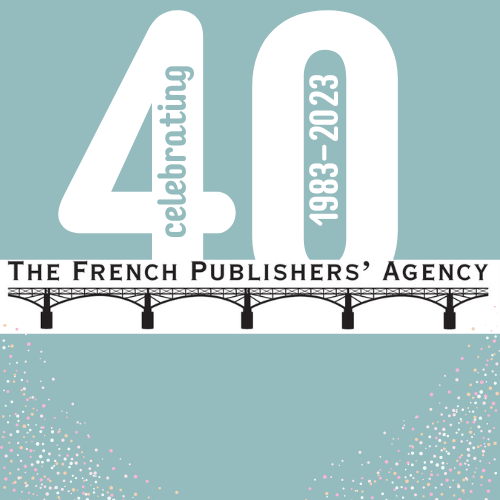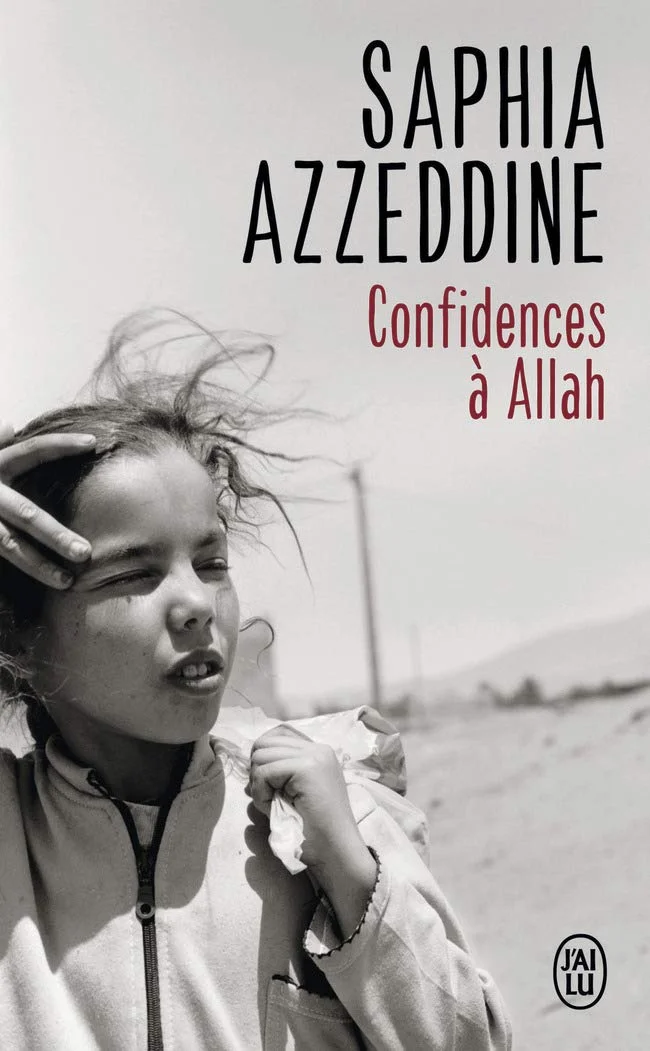DEAR ALLAH
Saphia Azzeddine
(Stock, 192 pages, first published in 2008, new edition 2019)
*** 60,000 COPIES SOLD IN FRANCE ***
*** CURRENTLY CONSIDERED FOR ADAPTATION INTO A SERIES IN THE U.S ***
*** RIGHTS SOLD TO GERMANY (WAGENBACH), SPAIN (DEMIPAGE), AND
SWEDEN (ORDFRONT) ***
*** ENGLISH TRANSLATION SAMPLE AVAILABLE ***
A deeply moving long prayer —Elle
How to become free when social circumstances destine you for a life of poverty and submission? Sixteen-year-old Jbara, one of eight children, tends the family’s flock of sheep in a remote Moroccan village. Jbara’s prospects are grim; there is no relief in sight from the daily grind of household chores, and the yoke of paternal authority. She has no one to talk to but Allah. It is to Him that Jbara confides and shares the story of her life in this raw and candid monologue.
Jbara is routinely pushed around, but what stirs up her indignation is the battery of interdictions to which she is subjected: “At home,” she says, “everything is haram—forbidden by Islamic law—including me.” While uneducated in most things, Jbara has enough sense to know that what she lets a local shepherd do to her in exchange for her favorite raïbi jamila—a delicious yogurt with grenadine—is most likely not haram. Inevitably, she becomes pregnant and her family exiles her from the village. On her journey she preciously carries along the pink Dior suitcase she found one day after it had fallen from an American tour bus. This Pandora’s box filled with exotic treasures—coconut lip gloss, a pearl G-string, and a roll of cash—signals the existence of another world that she is at last about to discover.
The city is an unforgiving place for a vulnerable young woman ignorant of the ways of the world, and too beautiful not to be noticed. Wherever she goes, she must contend with male lust. She progressively learns to turn the value of her body to her benefit. Yet she still hopes for a more respectable life, and takes a job as a maid in a wealthy household. The family’s son rapes her, marking a turning point in Jbara’s life. Weary of selling herself cheap, she embraces the life of a prostitute with determination, informing Allah that she is ready to pay the price. Now renamed Shéhérazade, she becomes the favorite of a rich Arab sheikh, and experiences, for a while, the mirages of freedom until a police raid lands her in jail. There, through study, she finds her way back to Allah. When she is released, Jbara takes on the name of Khadijah, the wife of the prophet. Against all expectation, she marries an imam and leads a virtuous life. But her trials and tribulations do not end there.
With unblinking directness, Saphia Azzeddine spares no details concerning the crude reality of Jbara’s sexual encounters. With equal delicacy and sensitivity, she captures the poignancy of Jbara’s moments of joyful discovery. Laden with fierce social commentary, Dear Allah speaks against the excesses of a patriarchal society. Jbara is a believer who lives her faith as she sees fit and prays to Allah in her own way: “What animates my faith is to love You,” she tells Him. “Loving You has allowed me to love myself and loving myself has allowed me to love.”
Saphia Azzeddine is a French-Moroccan writer, actress, screenwriter, and film director. She has written seven novels, including Sa mère (Stock, 2017), Bilqiss (Stock, 2015), Combien veux-tu m’épouser? (Grasset, 2013), and La Mecque-Phuket (Léo Scheer, 2010.) Mon père est femme de ménage (Léo Scheer, 2009) was adapted for the screen in 2011 and received the Europe 1 Audience Award at the Alpe d’Huez International Comedy Film Festival. After a theatrical adaptation at the Festival d’Avignon in 2008, Dear Allah was the subject of a second adaptation, this time in comics, published by Futuropolis in 2015.

